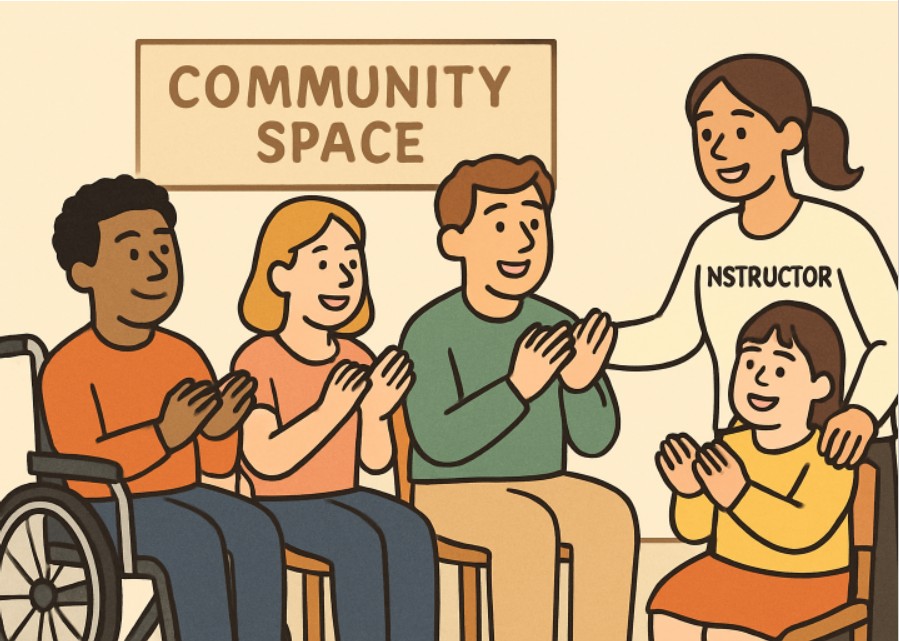Understanding Day Habilitation Programs
For adults with developmental disabilities, maintaining and building independence can transform every aspect of life, from daily living to broader social interactions. A day habilitation program provides a structured environment designed to nurture these skills. Through guided, supportive activities, participants can confidently pursue personal goals and broaden their worldviews.
Unlike traditional caregiving, these programs focus on more than supervision—offering skills training, community immersion, and crucial therapeutic services. Program models vary but share the goal of helping individuals thrive at home and in the broader community. Many families find that a day habilitation program fosters independence and lays the groundwork for stronger lifelong social connections and improved quality of life.
Personalized Support and Skill Development
The effectiveness of any day habilitation initiative rests on person-centered planning. This starts with recognizing each participant’s unique needs, abilities, and aspirations. Providers such as Beacon Specialized Living integrate activities from art, music, and physical fitness to structured social events, matching these opportunities to each individual’s preferences and goals. Such a tailored approach ensures skill development in critical areas—communication, decision-making, self-care, or vocational readiness. Recent advances in person-centered care underscore the importance of consistent progress tracking and active family involvement, so participants remain engaged and motivated.
Personal growth in these settings extends beyond formal lessons. Everyday encounters—from teamwork during a group art project to managing money on a community outing—become chances to reinforce independence and autonomy. These small achievements build self-esteem, translating to a more meaningful, self-directed life.
Community Integration and Social Engagement
Opportunities for genuine community participation take day habilitation far beyond the boundaries of a classroom or care site. Programs like Beacon Specialized Living’s Community-Based Day Program exemplify this approach, exchanging traditional in-center activities for a more immersive experience in real-world environments. Participants volunteer at nursing homes, contribute at food pantries, or assist at local thrift shops—where social skills, interpersonal boundaries, and empathy are honed through hands-on practice.
This emphasis on community engagement is strongly supported by research, which demonstrates that inclusive environments provide critical pathways to friendship, personal agency, and a sense of belonging. Through these continual, supportive interactions, participants gain self-confidence and challenge public perceptions of disability, promoting broader societal inclusion.
Therapeutic Services and Health Monitoring
Comprehensive care often includes health services tailored to an individual’s medical, emotional, and behavioral support needs. Program models like those at Beacon Specialized Living incorporate onsite nursing services and access to licensed physical, occupational, and speech-language therapists, all working to address co-occurring challenges many participants face. By integrating skilled professionals within the daily routine, day habilitation programs ensure that even those with complex needs can pursue independence safely and successfully.
Routine health monitoring, medication management, sensory integration activities, and behavior support plans allow participants to make developmental gains without compromising their physical or emotional well-being. This multidisciplinary approach safeguards overall health and enables consistent progress across personal care, mobility, and functional communication.
Recent Expansions and Innovations
The landscape for day habilitation is evolving, with many organizations expanding their reach and updating their models to serve diverse populations better. In April 2025, Helen Keller Services for the Blind announced the expansion of its Adult Day Habilitation Program, now welcoming all adults with developmental disabilities, whether or not they have vision impairments. This move highlights a growing industry-wide commitment to accessibility, tailored care, and the needs of a broader population.
Similarly, the opening of the May Institute’s new center in Randolph, Massachusetts, in June 2025 signals increased recognition of the need for high-quality services for autistic and developmentally disabled adults. The facility merges individualized support with strong medical oversight and daily living skills training, meeting demand in a region with a growing need for specialized adult services. These developments underscore the sector’s growing flexibility and focus on best practices.
Technology’s Role in Enhancing Day Habilitation
Technology creates even greater skill development and engagement possibilities in day habilitation settings. Virtual reality (VR) training tools immerse users in scenarios that teach functional life skills through play. Early research suggests that these adaptive platforms can help children and adults with intellectual disabilities bridge the gap between classroom learning and real-life practice, enhancing generalization and retention. For instance, studies have explored how VR can reveal new clues about autism social difficulties, offering insights into potential interventions.
Other digital advancements, including communication apps and wearable health tech, continue to broaden access and improve daily outcomes for participants. These innovations enhance skill acquisition, safety, connectivity, and independence—key goals for any effective day habilitation program.
Conclusion
Day habilitation programs provide adults with developmental disabilities vital opportunities for growth, connection, and self-determination. These programs foster new levels of independence and social competence by combining structured, person-centered activities, consistent community involvement, comprehensive therapeutic services, and fresh technological tools. As organizations expand and adapt their offerings, the positive impact on individuals, families, and communities is poised to grow even further.
Sebastian is an accomplished author with a passion for storytelling. His works span various genres, from thrilling mysteries to heartfelt romance novels. With a keen eye for detail and a knack for character development, Sebastian weaves engaging narratives that captivate readers and transport them to new worlds.
